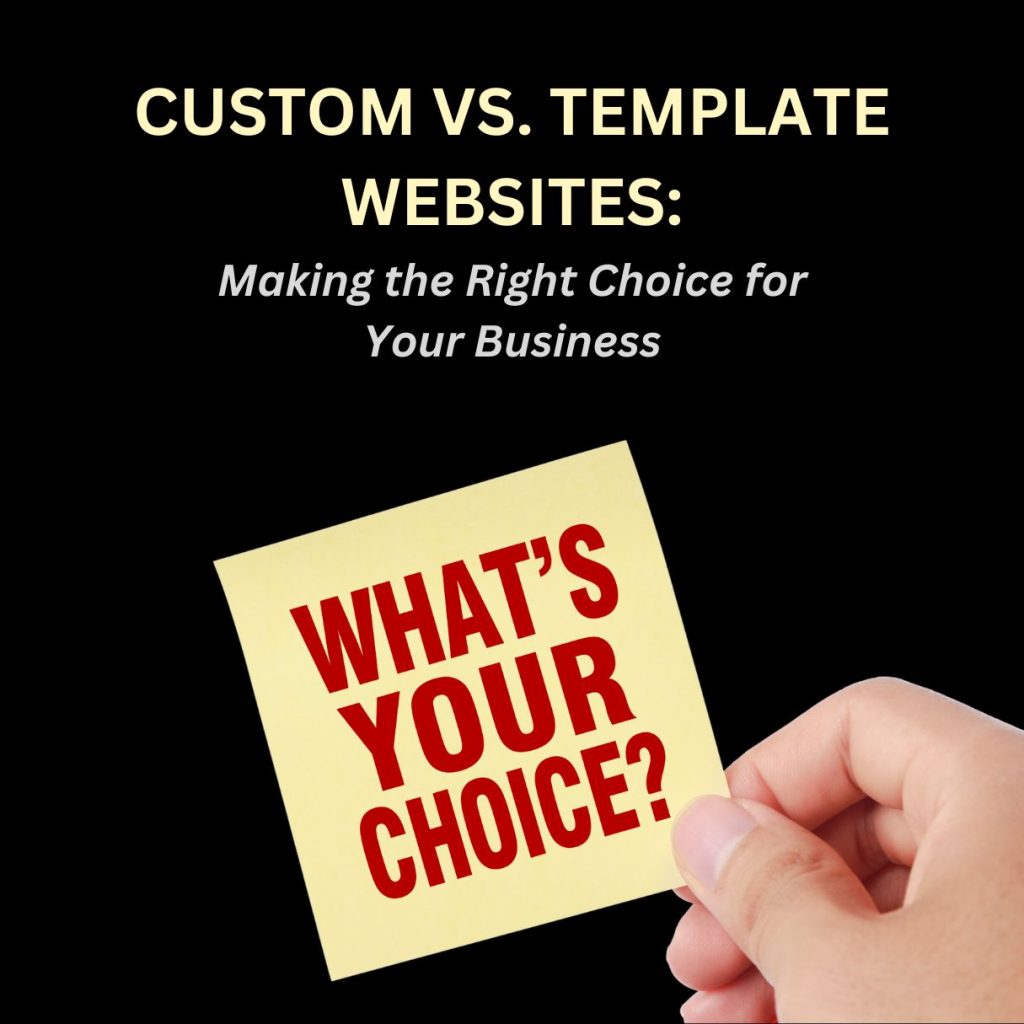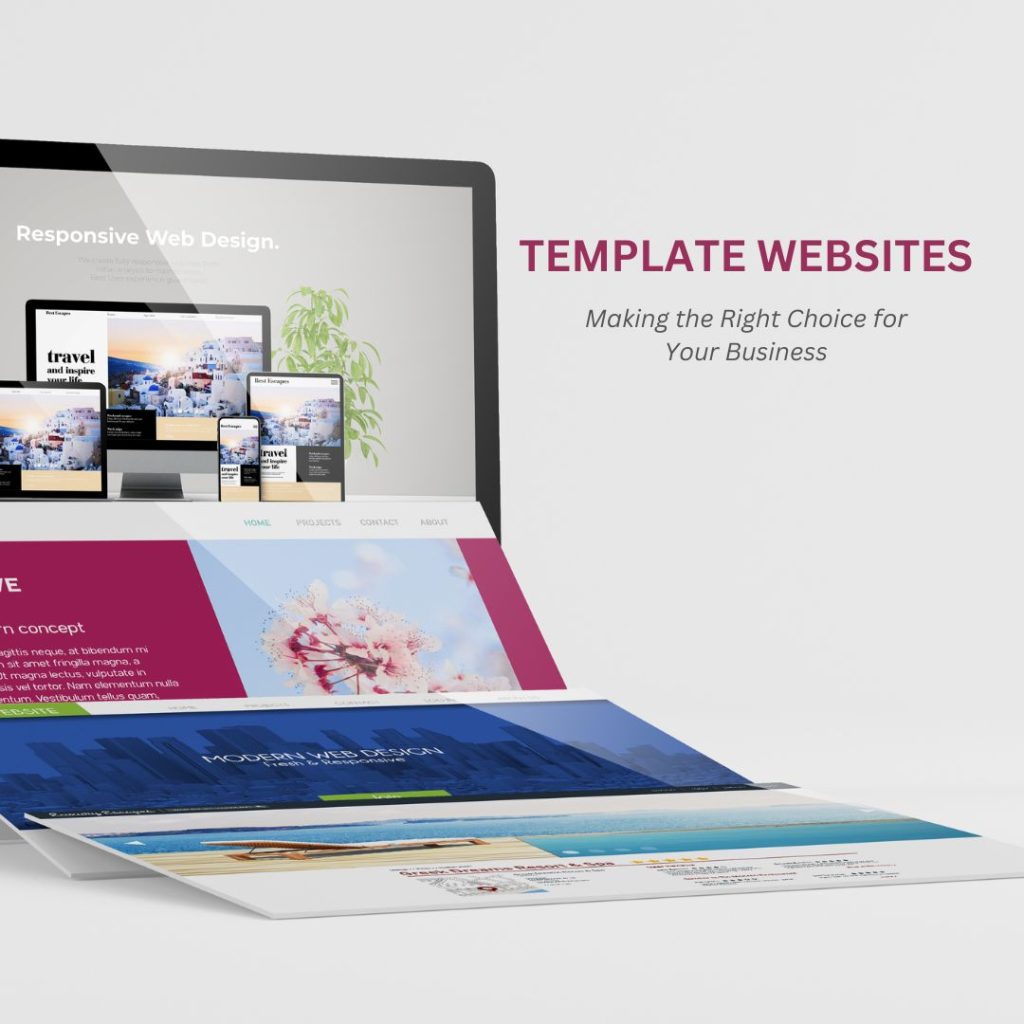
Custom vs Template Websites: Making the Right Choice for Your Business
Custom vs Template Websites: In the ever-evolving landscape of the internet, establishing a strong online presence is crucial for businesses of all sizes. When it comes to creating a website, one of the fundamental decisions you’ll face is whether to opt for a custom-designed site or use a template. Each approach has its own set of advantages and considerations, and understanding the differences is essential in making an informed decision that aligns with your business goals.
The Appeal of Templates

1. Cost-Effective:
Templates are often more budget-friendly compared to custom designs. Many templates are available for free, and even premium templates are generally more affordable than hiring a professional web designer.
2. Quick Deployment:
Templates provide a fast and efficient way to get your website up and running. They come pre-designed and pre-coded, allowing you to launch your site in a matter of days rather than weeks or months.
3. User-Friendly:
Templates are designed with user-friendliness in mind. They often come with drag-and-drop builders, making it easier for individuals with limited technical expertise to create and manage their websites.
4. Wide Variety:
There is an extensive selection of templates available, catering to various industries and design preferences. This allows you to find a template that closely aligns with your vision for your website.
The Power of Customization

1. Unique Brand Identity:
A custom-designed website allows you to create a unique and memorable brand identity. Tailoring the design to match your brand’s personality and values helps you stand out in a crowded online space.
2. Scalability:
Custom websites are often more scalable, allowing for easier integration of new features and functionalities as your business grows. This adaptability can be crucial in meeting changing business needs.
3. Optimized Performance:
Custom websites are built with your specific requirements in mind, leading to better performance. You can optimize the site for speed, user experience, and search engine rankings, providing a competitive edge.
4. Security:
While security depends on various factors, custom websites can offer enhanced security measures. Tailoring security features to your specific needs reduces the likelihood of vulnerabilities present in generic templates.
Making the Right Choice

1. Consider Your Budget:
If you have budget constraints and need a quick online presence, a template might be the way to go. However, if you can invest more upfront and prioritize long-term benefits, a custom design might be a better fit.
2. Evaluate Your Technical Skills:
Templates are designed to be user-friendly, but if you have specific technical requirements or a unique vision, custom development might be necessary. Consider your technical skills and the complexity of your website needs.
3. Future Growth Plans:
Think about your business’s future. If scalability and flexibility are crucial, a custom website may better accommodate your growth plans.
4. Brand Differentiation:
If setting yourself apart from competitors is a priority, a custom design allows for a more distinct and tailored brand identity.
In conclusion, the choice between a custom or template website ultimately depends on your unique business needs, goals, and resources. While templates offer a quick and cost-effective solution, custom websites provide unparalleled flexibility, scalability, and brand identity. Carefully weighing the pros and cons of each option will guide you toward a decision that aligns with your business vision and objectives.

